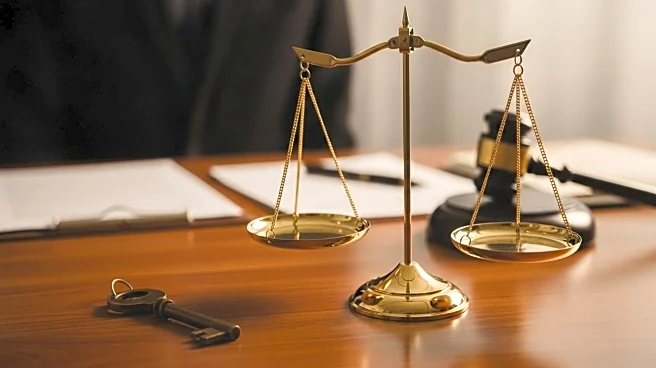What is the story about?
What's Happening?
Former French President Nicolas Sarkozy has been informed by France's financial prosecution office about the specifics of his prison reporting, following his sentencing to five years for criminal conspiracy related to campaign finance from Libya. Sarkozy, who maintains his innocence, will not be detained immediately, allowing him time to organize his affairs. The National Financial Prosecutor's office has not disclosed the details publicly to avoid media attention during his detention. Sarkozy, a significant figure in conservative circles, was sentenced for using his position to facilitate corruption at the highest level to finance his 2007 presidential campaign. The court has allowed him to file a release request, which the appeals court will process within two months.
Why It's Important?
The sentencing of Nicolas Sarkozy marks a significant moment in French political history, as he is the first modern ex-president to face imprisonment. This development underscores the legal accountability of political figures and the ongoing scrutiny of campaign finance practices. Sarkozy's case highlights the intersection of international relations and domestic politics, given the involvement of Libyan funds. The outcome of his appeal could influence public trust in political institutions and the enforcement of anti-corruption measures. Sarkozy's imprisonment may also impact conservative political dynamics in France, where he remains influential despite his retirement from active politics.
What's Next?
Sarkozy's appeal trial is anticipated to occur in the spring, which could potentially alter the course of his imprisonment. The appeals court's decision on his release request will be pivotal, as it may set a precedent for handling high-profile political cases. The French justice system's approach to Sarkozy's detention, including potential special conditions, will be closely watched. The broader implications for French politics and Sarkozy's legacy will unfold as the legal proceedings continue, potentially affecting future political campaigns and the enforcement of campaign finance laws.

















